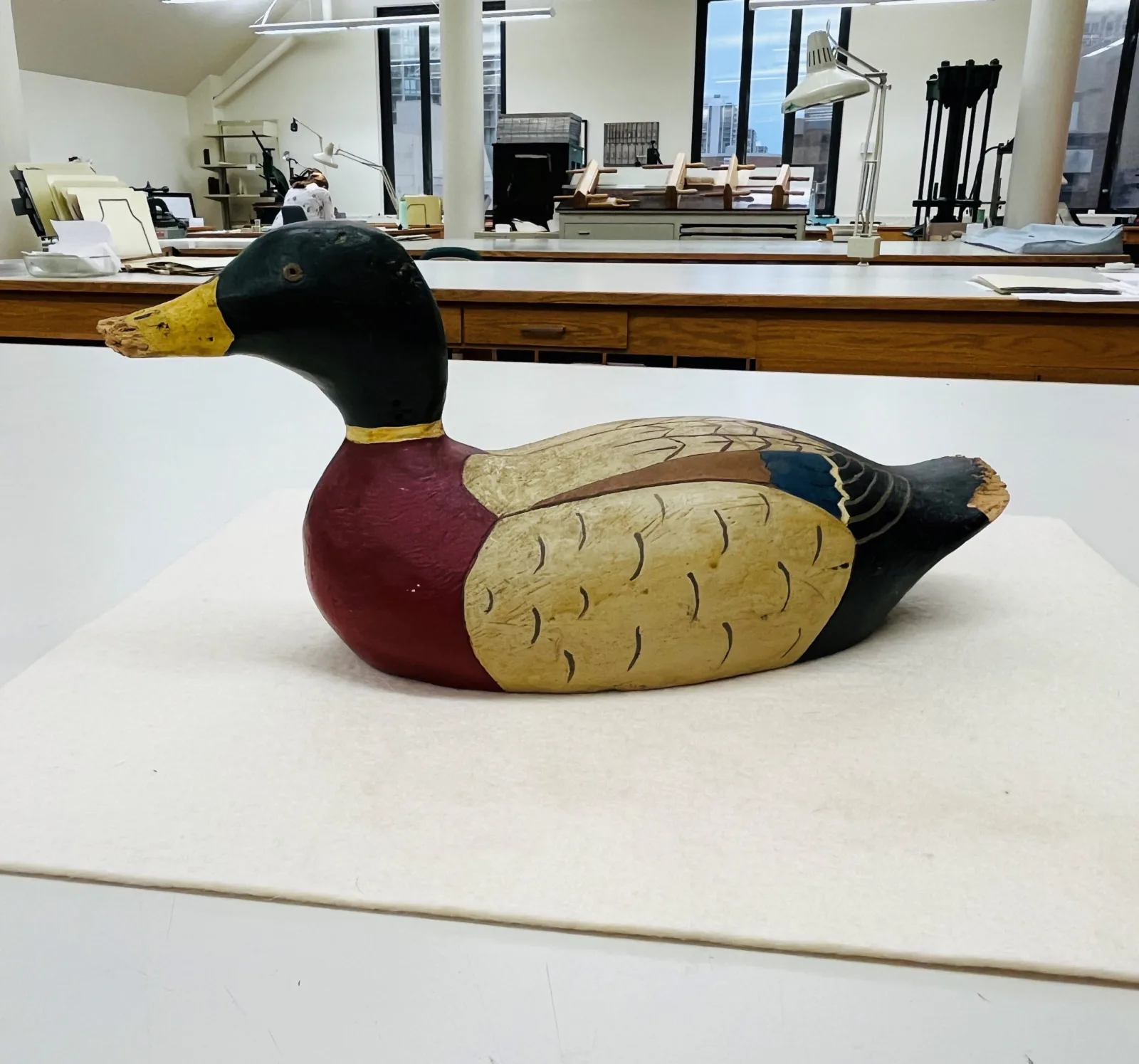It sounds like something out of a Monty Python sketch. Every 100 years, the esteemed dons at Oxford’s All Souls College put on their regalia and march around the college singing “The Mallard Song” while carrying one of their peers around on a chair. His name: Lord Mallard.
It’s a tradition that started nearly 600 years ago and lives on to this day. I came across Lord Mallard and the eponymous song in a contemporary book in the Newberry’s collection, A Dodo at Oxford, that itself has a bizarre back story. A few Google searches didn’t lead to much other information about the duck, so I turned to the Newberry’s collection. There I found an 1899 work on the history of All Souls College.
According to legend, a very large mallard flew out of a drain during the construction of All Souls, which is one of the many colleges that make up Oxford University in England. All Souls is one of the most competitive postgraduate schools in the world. It’s been an esteemed center of humanistic inquiry and intellectual thought since 1438.
Something about the big mallard left an impression, because that one incident, though possibly apocryphal, led to the tradition that persists to this day (the last Lord Mallard march was in 2001). At times the mallard has been portrayed as a sort of barbarous enemy. At other times, it’s viewed with respect.
That initial encounter in the 1430s was memorialized by “The Mallard Song.” Here the duck is portrayed as “swapping,” which is another way of suggesting it was aggressive:
The Griffine, Bustard, Turkey & Capon
Lett other hungry Mortalls gape on
And on theire bones with Stomacks fall hard,
But lett All Souls' Men have ye Mallard.
CHORUS:
Hough the bloud of King Edward,
By ye bloud of King Edward,
It was a swapping, swapping mallard!
By the sixteenth century, the Oxford dons were marching around the campus with sticks and poles at night, singing the song. Picture forty or so people in caps, gowns, and stoles. The evening concluded with a roasted mallard for dinner. The tradition was never to be seen by anyone but the college fellows.
One could easily live a lifetime without experiencing a Lord Mallard march. That’s the challenge with traditions that take place once every 100 years. Originally the mallard was a live bird, but by 1901 a dead bird was paraded, and by 2001 a wood carving was celebrated. In Winging It, we display a wood-carved mallard to show how a bird-related tradition evolved.
In the most recent event, Dr. Martin West, a pre-eminent scholar of Classics and Linguistics, served as Lord Mallard, and the younger fellows hoisted him in a chair while he held the wooden mallard on a pole.
As curator, one of my goals was to find items and stories that truly represented the Newberry’s eclectic collection. In Lord Mallard, we have an item that’s a little bit academic and a little bit quirky. Much like the Newberry itself.
About the Author
Bob Dolgan is Director of Communications at the Newberry and Curator for Winging It: A Brief History of Humanity’s Relationship with Birds, which runs now through September 27, 2025.
